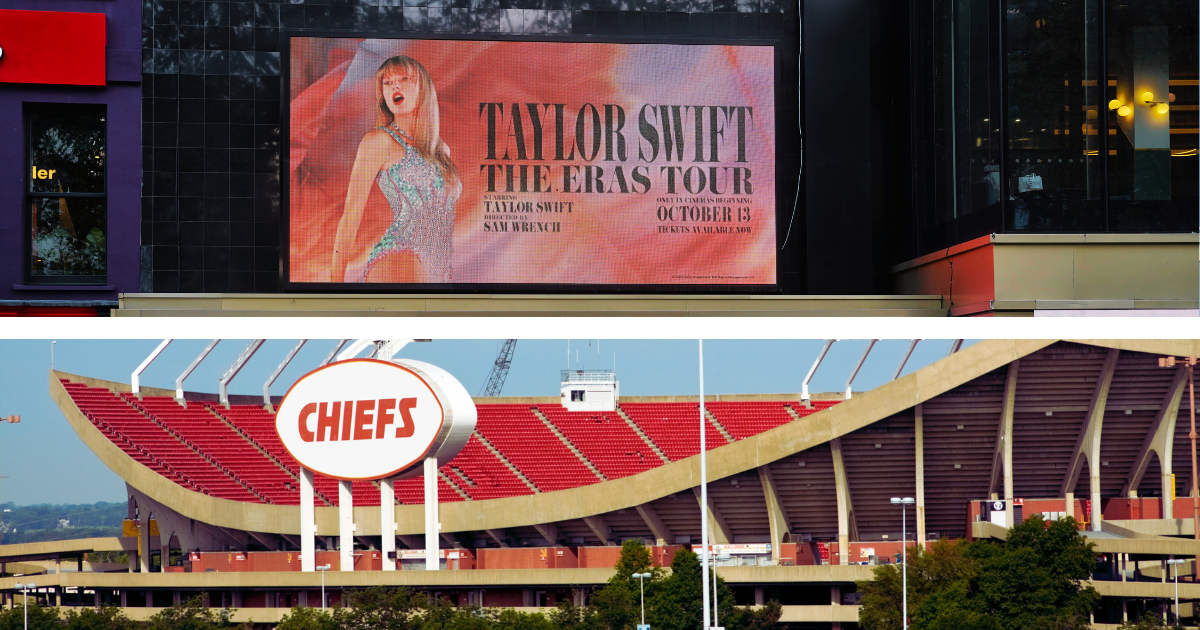
At the end of September, famous singer Taylor Swift started frequenting NFL player Travis Kelce’s Kansas City Chiefs games, which ignited rumors of a possible new relationship that has since been confirmed. According to Insider, Swift’s attendance boosted Kelce’s social media following and, in turn, could land him a financial touchdown in the millions with new endorsements.
By no means is Kelce suffering financially. Beyond the $12.3 million he’s earning on the field this season, as reported by Spotrac, Kelce has also carved out a niche for himself in the entertainment world. He once took center stage in a reality dating series on E! titled “Catching Kelce” and has since launched a highly popular sports podcast, sharing the mic with his brother, Jason Kelce of the Philadelphia Eagles.
Avid sports viewers would also be hard-pressed not to spot him frequently gracing their screens in various advertisements. Industry expert Andrew Petcash from Profluence pegs Kelce’s annual endorsement earnings at a whopping $5 million, partnering with big-name brands such as Nike, T-Mobile, Old Spice, and McDonald’s.
The biggest boon resulting from Taylor Swift and Travis Kelce’s relationship so far is the increased sale of the football player’s sports merchandise, including jerseys, fatheads, and onesies. After Swift’s first Chiefs’ game, Kelce’s merchandise “saw a nearly 400% spike in sales throughout the Fanatics network of sites, including NFLShop.com,” a spokesperson told The Associated Press. Additionally, Kelce’s podcast soared to the No. 1 spot on Apple Podcasts at the time.
As Kelce’s recent retail success shows, it seems evident that the ability to influence consumers has only gotten easier. But is that a good thing?
Pop culture influence and marketing used to be locked behind only a few gatekeepers, but the advent of social media has shifted the power balance considerably.
For more than 20 years, the “Oprah Effect” reigned supreme: Everything and everyone that Oprah Winfrey endorsed or associated with seemed to strike gold. Consider brands such as Spanx and Carol’s Daughter, which skyrocketed to fame, and figures like Dr. Oz and Toni Morrison, who garnered massive attention after their appearances on Winfrey’s program.
Does this mean that the general consumer is easily swayed by celebrity stardom and now social media influencers with large followings? Though some people might prefer to make decisions based on research and varying perspectives, livestream shopping shows us that not everyone does.
HubSpot explained that for better or worse, “influencer recommendations matter more than recommendations from friends and family,” and “as of 2021, almost 60% of marketers said influencer marketing was the most effective marketing trend.” In 2022, 30% of consumers found influencer recommendations more important than those from friends or family, at 27%. This shift makes sense as influencers are typically considered experts in their respective fields. Because of this, many e-commerce businesses prioritize influencer marketing rather than relying solely on word-of-mouth, as influencers and celebrities wield more influence over their audiences.
This certainly seems to be the case with Taylor Swift, who inadvertently influenced her own fans to buy Kelce’s merchandise. Some might even consider her a more current example of the Oprah Effect.
